Iraq’s Nujaba: No differentiation between Turkey, US in resistance against occupiers
Iraq’s al-Nujaba Movement has warned Ankara that the Islamic resistance group does not differentiate between Turkish and American occupation forces in protecting the Arab country’s territorial integrity and confronting the aggressors.
Nasr al-Shammari, the official spokesman of the Iraqi resistance movement, raised the alarm in a tweet on Tuesday and said the Iraqi people, parliament and government are calling for an end to the presence of foreign occupation forces in their country.
“We in the Islamic resistance do not look at Turkey with the same view that we look at the United States except on the issue of the occupation of Iraq’s territory,” Al-Shammari wrote.
Nujaba’s spokesman pointed to Turkey’s diplomatic messages, threats and attacks against Iraq and said, “It is better to ask their predecessors [the American occupiers] about the price they will have to pay for this.”
Al-Shammari reiterated the warning against Ankara in his tweet and said, “The wise should learn from the experiences of others.”
— المهندس نصر الشمري (@Nasralshammari) August 10, 2021
Al-Nujaba Movement is part of the Popular Mobilization Units (PMU), an Iraqi government-sponsored umbrella organization composed of around 40 factions of volunteer counter-terrorism forces, including mostly Shia Muslims besides Sunni Muslims, Christians and Kurds.
Baghdad has previously condemned Turkey’s ongoing military operations in the semi-autonomous Kurdistan region against purported positions of the Kurdistan Workers’ Party (PKK) militant group, stating that Ankara intends to seize control of the strategic northwestern city of Mosul and annex it to its own territory.
Turkish military forces launched operations Pence-Simsek and Pence-Yildirim on April 23 in northern Iraq’s Metina and Avasin-Basyan regions in pursuit of PKK militants.
Militants of the PKK — designated as a terrorist group by Turkey, the United States and European Union — regularly clash with Turkish forces in the Kurdish-dominated southeast of Turkey attached to northern Iraq.
A shaky ceasefire between the PKK and the Turkish government collapsed in July 2015. Attacks on Turkish security forces have soared ever since. More than 40,000 people have been killed during the three-decade conflict between Turkey and the autonomy-seeking militant group.
Meanwhile, there has been a sharp increase in demands for the expulsion of US troops from Iraq, and the region, since Washington’s assassination last year of top Iranian anti-terror commander General Qassem Soleimani and Abu Mahdi al-Muhandis, the deputy head of Iraq’s Popular Mobilization Units.
Two days after the January 3, 2020 attack, which was carried out on the order of then-US president Donald Trump, Iraqi lawmakers approved a bill that requires the government to end the presence of all foreign military forces led by the US.
After a meeting between Iraqi Prime Minister Mustafa al-Kadhimi and US President Joe Biden in Washington last month, an agreement was signed that formally ended the US “combat” mission in Iraq by the end of 2021, more than 18 years after US troops were sent to the country.
There are currently 2,500 US troops in Iraq, who Washington claims are focusing on countering the remnants of the Daesh terrorist group. Washington says the role in Iraq will shift entirely to training and advising the Iraqi military to defend itself, but the move is dismissed as a simple rebranding of the American occupation.
IRGC Navy seizes two fuel smuggling vessels in Persian Gulf
Iran march into AFC Futsal Asian Cup final with win over Iraq
Hamas slams latest Israeli strikes on Gaza, says Netanyahu aims to derail truce
UN group denounces EU’s ‘illegal’ designation of Iran’s IRGC
Russia hopes US ‘resorts to wisdom’ amid tensions with Iran
VIDEO | Press TV's news headlines
Palestine Action activists exonerated
Russia, Ukraine hold talks after ‘productive’ opening session


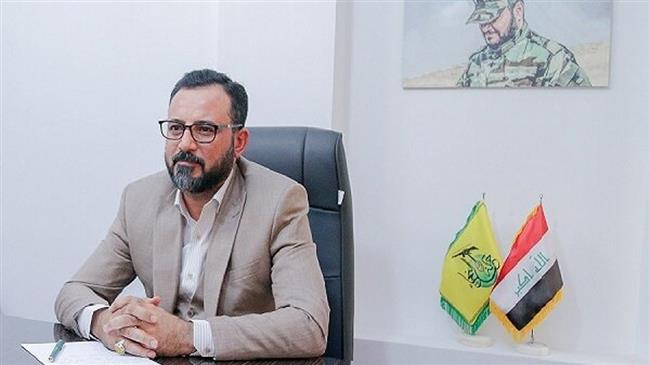
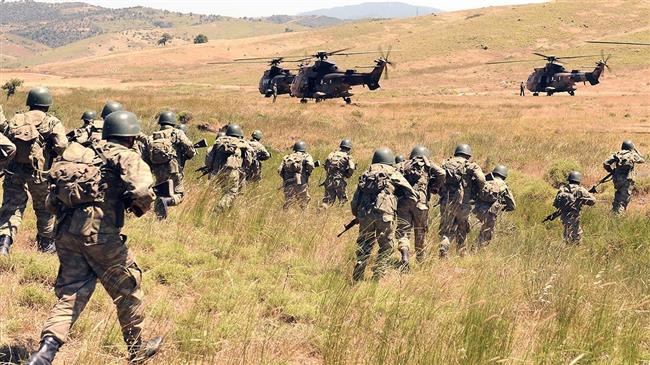
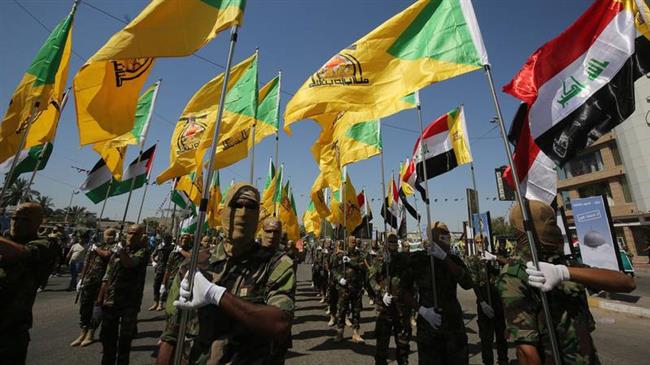
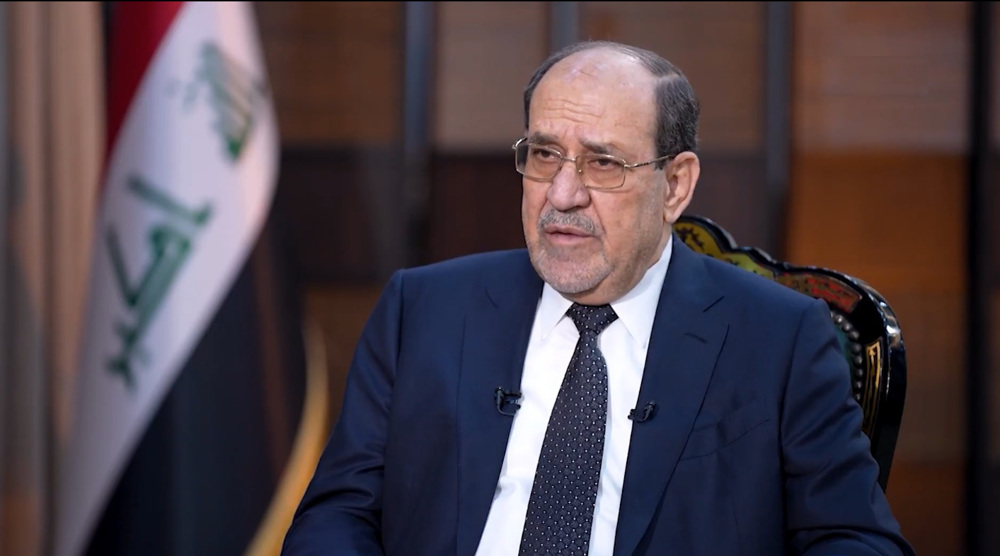
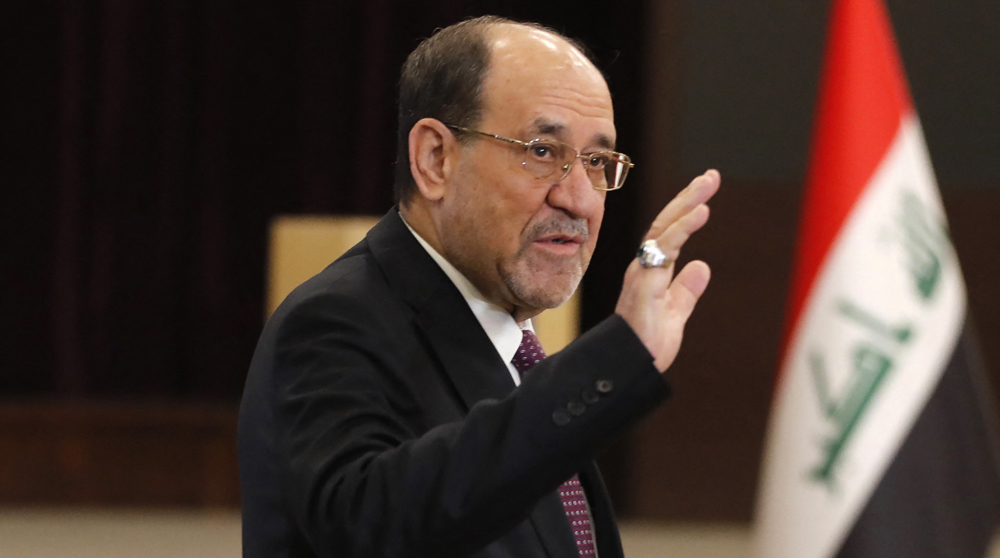
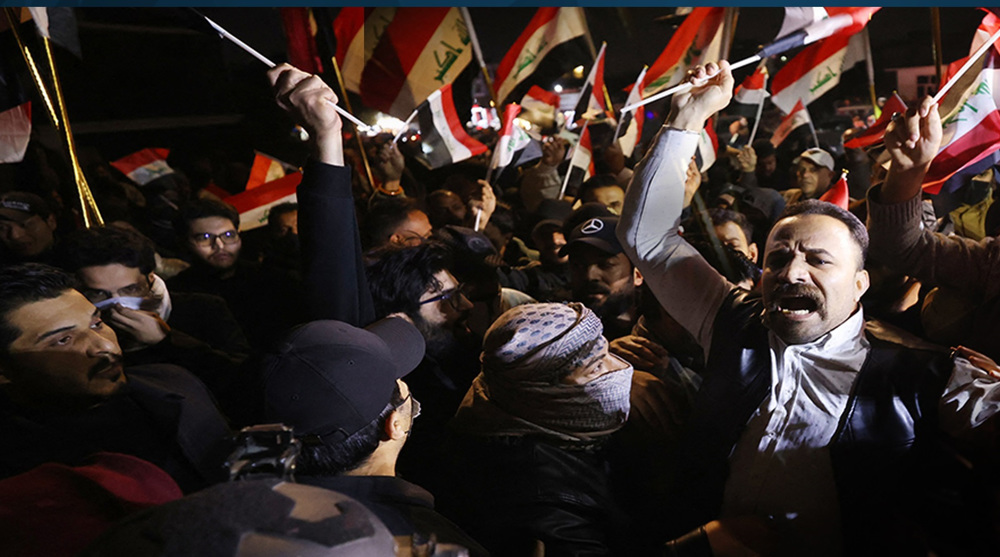




 This makes it easy to access the Press TV website
This makes it easy to access the Press TV website